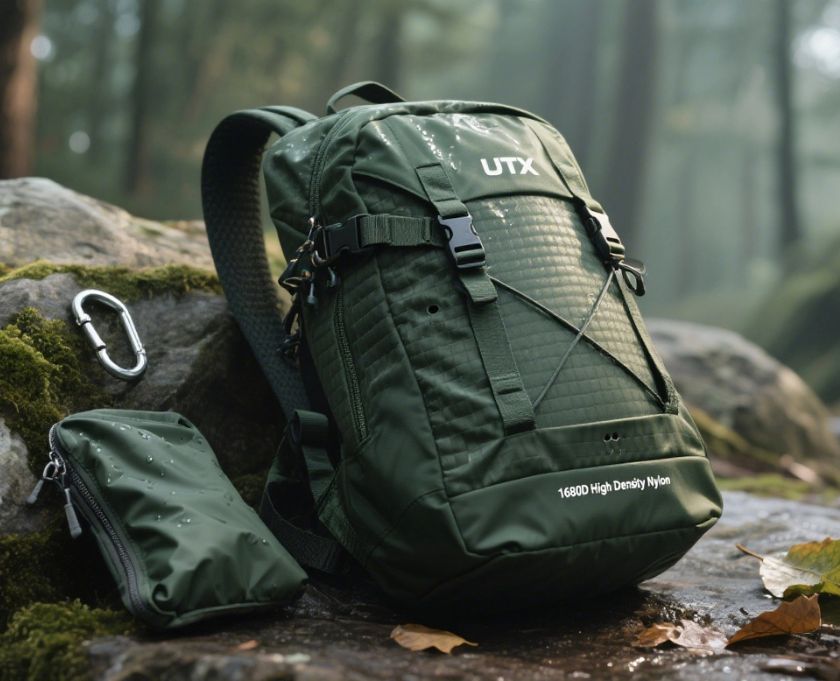Beautiful Plants For Your Interior

Choosing the right backpack material can make or break your outdoor adventure. In 2025, high-density nylon in outdoor backpacks has become the gold standard for durability, waterproofing, and long-term performance.
What Is High-Density Nylon?
Manufacturing Process and Structure
High-density nylon is woven tightly for maximum strength, often coated with PU (polyurethane) for waterproofing.
High-Density Nylon vs. Regular Nylon
- High-Density Nylon: Stronger, more resistant to wear and tear.
- Regular Nylon: Lighter but less durable for rugged conditions.
Key Advantages of High-Density Nylon in Outdoor Backpacks
Superior Durability and Tear Resistance
Handles rocky trails, heavy loads, and rough handling.
Waterproofing and Weather Resistance
Keeps gear safe in rain, snow, or humid climates.
Lightweight Yet Strong
Provides high performance without unnecessary weight.
Resistance to UV and Abrasion
Retains color and structure even with long sun exposure.
Professional and Stylish Appearance
Perfect for both outdoor and urban settings.
Potential Drawbacks of High-Density Nylon
Higher Cost Compared to Standard Materials
Premium quality comes with a premium price.
Less Breathable in Hot Climates
May feel warmer than mesh or cotton backpacks.
Best Use Cases for High-Density Nylon Outdoor Backpacks
Long-Distance Hiking and Trekking
Built to endure multi-day adventures.
Camping and Backpacking Adventures
Reliable storage for gear, food, and sleeping bags.
Business Travel Meets Outdoor Performance
Stylish enough for airports, durable enough for trails.
Top 8 High-Density Nylon Outdoor Backpacks in 2025
- Osprey Aether Plus HD Nylon Edition — Exceptional suspension system
- Deuter Aircontact HD Nylon Pack — Long-haul comfort and ventilation
- The North Face Terra HD Nylon — Reliable and budget-friendly
- Gregory Baltoro HD Nylon — Ergonomic design for heavy loads
- Arc’teryx Bora AR HD Nylon — Premium build and weatherproofing
- Thule Landmark HD Nylon — Perfect for travel and outdoor explorers
- Patagonia Black Hole HD Nylon — Eco-conscious and rugged
- Mark Ryden Pro Explorer HD Nylon — Urban-outdoor hybrid style
Comparison Table: High-Density Nylon vs. Other Materials
| Material | Durability | Waterproofing | Weight | Cost | Best For |
|---|---|---|---|---|---|
| High-Density Nylon | Excellent | Excellent | Medium | Higher | Hiking & travel |
| Regular Nylon | Good | Good | Light | Lower | Light day trips |
| Polyester | Fair | Moderate | Light | Affordable | Students & commuters |
| Canvas | Durable | Low | Heavy | Medium | Casual & retro style |
Common Mistakes When Buying Outdoor Backpacks
- Choosing style over durability
- Ignoring waterproof ratings
- Overlooking ergonomic straps and back support
- Selecting wrong capacity for trip length
Maintenance Tips for High-Density Nylon Backpacks
- Clean with mild soap and lukewarm water
- Avoid machine washing to protect coatings
- Air-dry in shade to prevent UV damage
- Reapply waterproof spray as needed
Frequently Asked Questions (FAQs)
Q1: Is high-density nylon always waterproof?
A: Only if coated with PU or DWR treatment.
Q2: Does high-density nylon feel heavy?
A: Slightly heavier than regular nylon, but still lightweight compared to canvas.
Q3: Are these backpacks suitable for daily commuting?
A: Yes—stylish models adapt well to city use.
Q4: How long do high-density nylon backpacks last?
A: With proper care, 7–10 years or more.
Q5: Is high-density nylon eco-friendly?
A: Not inherently, but some brands use recycled nylon versions.
Conclusion: Why High-Density Nylon Leads Outdoor Backpack Materials
In 2025, high-density nylon in outdoor backpacks proves to be the ultimate choice for durability, waterproofing, and versatility. Whether you’re a hiker, traveler, or professional, this material ensures long-lasting performance and style.